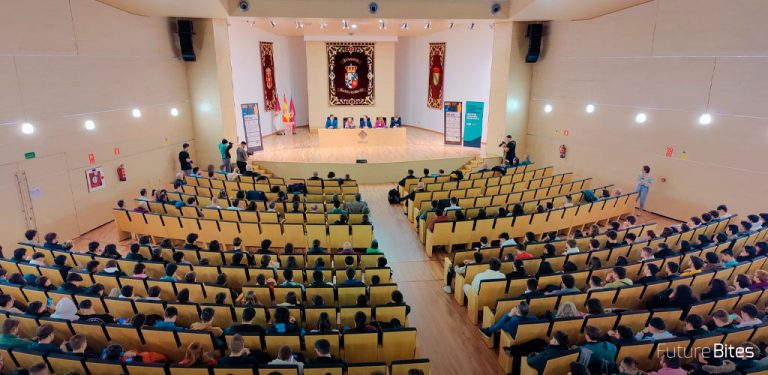The Human Resources department has played a key role in companies for many decades. But it is not unaware of the rapid transformation of the working environment, caused by the implementation of new technologies, digitalization and its impact, which forces those responsible to adapt and modernize processes and dynamics.
In this sense, HR professionals must adopt new skills and knowledge that allow them to lead the transformation in their companies. But what is the role of human resources today? How do they relate to other departments? What mistakes are made?
To learn more about the work of this department, Emilio Marquez organized a new debate about professionals within the Latina Valley. This meeting was sponsored by Neurok and with the collaboration of the FEED Employment Fair, and representatives of the companies Blue Indico, Estagiranet, FEED Employment Fair participated, Future SpaceThe following companies have been established in the region: Restalia Group, Happy Force, Infoempleo, iphonedroid, La Clave Recursos Humanos, La Latina Valley, McDonalds, NETCheck, Neurok, Simms & Associates, Sopra HR Software, Talentoo, Ticketea and Universidad Europea.
One of the main conclusions of the debate is that HR is already part of a more global vision of the company, participating in decision making and business generation. "It is already assumed as a department that can directly affect the company's performance with its plans and strategies, not as a merely organizational division," says one of the participants.
As for their relationship with the rest of the company's departments, they remember that it is important that it goes hand in hand with marketing, to transmit a unified and coherent message about the company, collaborating especially in communication. "It is key to create the necessary synergies to attract and retain employees," they point out.
They also recall that the training function of the department is important, urging the other areas of the company to promote a culture that values the quality of decisions more than speed. In addition, they should encourage communication between departments. "There are communication flows that are very complex in large companies", they recall, giving as an example that sometimes it is necessary to fill in forms in order to make simple decisions.
Also, the most difficult HR relationship is often with the finance department. "The finance manager often fears the HR department because of possible unexpected costs," the conclusions point out.
Another HR challenge is to adapt to the emergence of new technologies, not only at the management level, but also in the selection processes. "Using technology in this field, for example, through mobile applications, is a very favorable disruptive step," they say.
As for the value of social networks, they claim that they are useful for communication, but that they should not be taken into account as the only element for choosing a candidate.
"Professional social networks are the most appropriate when analyzing profiles for hiring, especially Linkedin," they say. "Other social networks such as Twitter and Facebook should not be used in a drastic way to make professional decisions. Unless, of course, they include negative mentions about the company that could affect the candidate's work," they warn.
The front line where the greatest innovation has been found in terms of human resources are the job portals (classifieds). "Job ads in more traditional media have been replaced by information offered by Infojobs, Infoempleo, etc. This is a common path to what happened with the paper CV and the jump to digital formats such as profiles or PDF".
A situation that has particularly affected temporary employment agencies, which have not been able to compete and have "surrendered" to Infojobs and other competitors.
"HR is a very conservative area within organizations."
Still, the participants in the debate lacked more courage to innovate and take risks in HR. "The HR area is a very conservative area within the organizations, generally speaking, it is afraid of any innovation that leads to possible friction with the administration", they conclude.
But it's not all joy in the HR department. The people in charge also recognize mistakes, especially in the selection process. Which are the most common ones? One occurs with the climate of the interview, since sometimes you can't relax the atmosphere to create a relaxed, albeit professional, encounter.
"We have to create a favorable environment, so that the candidate feels comfortable before starting to prove himself," they said in the debate. "The excessive tension in the selection process is very negative."
It is also important that the person responsible for the selection process knows how to sell the company's culture: "he must be a great salesman". "Brands must know how to fall in love in terms of human resources. To do this, the company's culture must be promoted", they point out in the same sense.
"Performing a technical or assessment test can serve as a filter to rule out invalid professionals, although the tests should not be abused"
Finally, they recommend that selection processes be made objective, with tests that allow the candidate to be evaluated directly. "A candidate cannot be discarded because he gives a bad impression," they warn. "Taking a technical or assessment test can serve as a filter to discard invalid professionals, although the tests should not be abused: we cannot go overboard with the difficulty or demands of the tests," they conclude.
Source and original article: El Economista.












